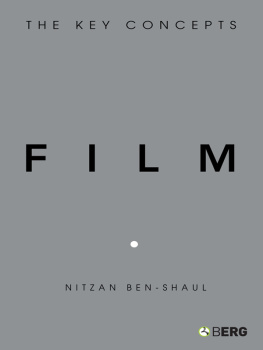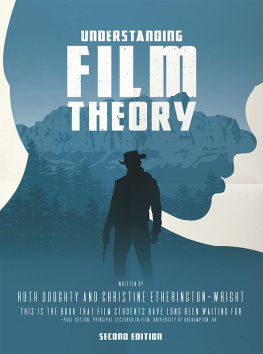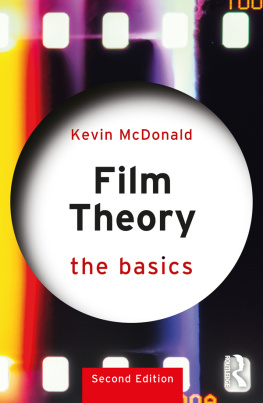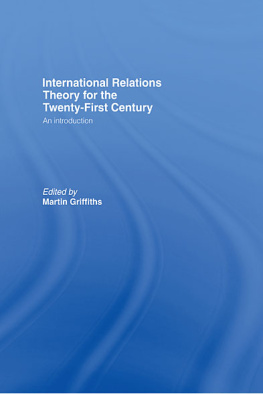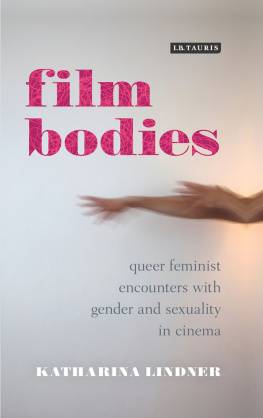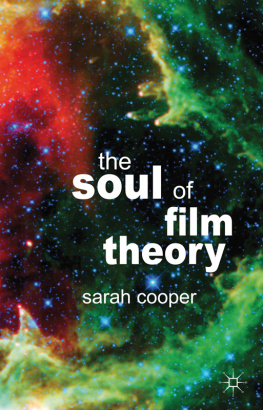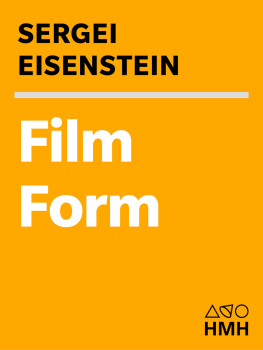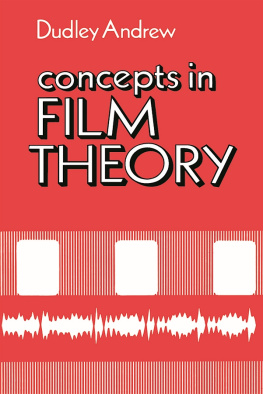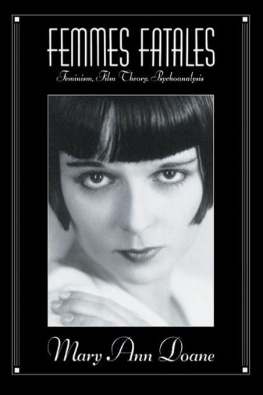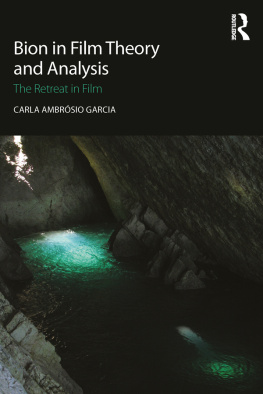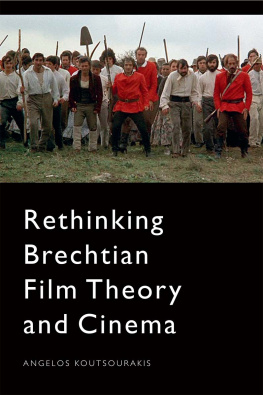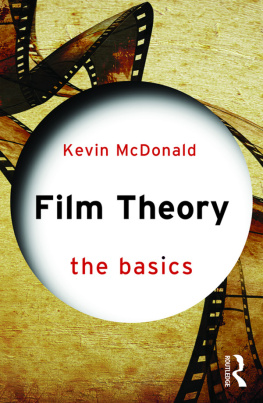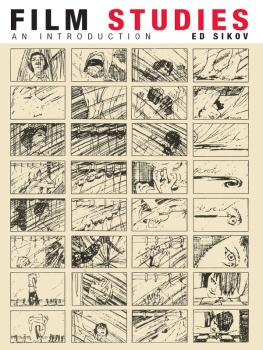The Key Concepts
ISSN 1747-6550
The series aims to cover the core disciplines and the key cross-disciplinary ideas across the Humanities and Social Sciences. Each book isolates the key concepts to map out the theoretical terrain across a specific subject or idea. Designed specifically for student readers, each book in the series includes boxed case material, summary chapter bullet points, annotated guides to further reading and questions for essays and class discussion
Forthcoming in this series
Technoculture: The Key Concepts
Debbie Shaw
Design: The Key Concepts
Mark Westgarth and Eleanor Quince
Fashion: The Key Concepts
Jennifer Craik
Food: The Key Concepts
Warren Belasco
Globalization: The Key Concepts
Thomas Hylland Eriksen
New Media: The Key Concepts
Nicholas Gane
Performance: The Key Concepts
Philip Auslander
Photography: The Key Concepts
David Bate
Queer Theory: The Key Concepts
Noreen Giffney
Race: The Key Concepts
C. Richard King
The Body: The Key Concepts
Lisa Blackman
Visual Culture: The Key Concepts
John Lynch
FILM
The Key Concepts
Nitzan Ben-Shaul

English edition
First published in 2007 by
Berg
Editorial offices:
First Floor, Angel Court, 81 St Clements Street, Oxford OX4 1AW, UK
175 Fifth Avenue, New York, NY 10010, USA
Nizan Ben-Shaul 2007
All rights reserved.
No part of this publication may be reproduced in any form
or by any means without the written permission of Berg.
Berg is the imprint of Oxford International Publishers Ltd.
Library of Congress Cataloging-in-Publication Data
Ben-Shaul, Nitzan S.
Film : the key concepts / Nitzan Ben-Shaul.
p. cm.(The key concepts)
Includes bibliographical references.
ISBN-13: 978-1-84520-365-8 (cloth)
ISBN-10: 1-84520-365-8 (cloth)
ISBN-13: 978-1-84520-366-5 (pbk.)
ISBN-10: 1-84520-366-6 (pbk.)
1. Motion pictures. I. Title.
PN1994.B4147 2007
791.43dc22
2006033244
British Library Cataloguing-in-Publication Data
A catalogue record for this book is available from the British Library.
ISBN 978 1 84520 365 8 (Cloth)
978 1 84520 366 5 (Paper)
Typeset by JS Typesetting Ltd, Porthcawl, Mid Glamorgan.
Printed in the United Kingdom by Biddles Ltd, Kings Lynn.
www.bergpublishers.com
To the memory of my mother, may she rest in peace.
CONTENTS
This book is based on various film theory courses I have been giving for the past fifteen years at the Film and Television Department in Tel Aviv University. I would like to thank my students in these courses. Their varied questions and comments helped me to consolidate a presentation of the different theories addressed by the book as clearly as possible. I would also like to thank my colleagues at the department, particularly Dr Anat Zanger, Professor Nurit Gertz and Professor Michal Friedman for their contribution to the organization and teaching of the film theory course of studies in the department.
I thank Tristan Palmer from Berg Publishers, for suggesting this book to me and for his gracious accompaniment of its different stages of production. I also thank the anonymous reviewers of the book for their valuable suggestions.
I especially thank my wife Daphna Cohen Ben-Shaul and my daughters, Noga, Carmel and Guy, for their patience and support.
I dedicate this book to Professor Annette Michelson, my present friend and former doctoral adviser at the Cinema Studies Department in New York University. Thanks to her in-depth seminars I devoted my professional life to the theoretical research of film.
Nitzan Ben-Shaul
Tel Aviv University
Differing from film history, film criticism or filmmaking activities that deal with specific films in specific historical contexts film theory strives to offer general ideas on the nature of film and models for film analysis, presumably applicable to every film irrespective of its specific context of production. Beyond the obvious pleasure and reward involved in thinking about this multilayered culturally dominant medium, film theory enriches our viewing. It also aids historians, critics and filmmakers who are by necessity consciously or inadvertently guided by theoretical assumptions in their practice.
Learning about what has been said on the nature of film, on its peculiar signifying processes, on its ideological and psychological effects, or on the ways it can be productively placed within historical, social, spectator or authorial contexts broadens our comprehension of the medium, enriches our viewing, and enhances awareness of the theoretical questions relevant and deserving attention when writing film history, criticizing a film or making one.
This book aims to provide a brief and coherent overview of film theory for beginning readers. It isolates six key concepts in four chapters, through which the main sites in film theory are covered. Each chapter follows the changing conception of the concept addressed through key articles. Some necessary historical guidelines and references to adjacent fields are offered, along with boxed summaries analysing films and bulleted summaries at the end of each chapter to provide beginning students with a map of the field. A section offering questions for essays and class discussions and an annotated bibliography appear at the back of the book.
Each key concept focuses attention on a particular aspect of the medium: From the Photogenic to the Simulacrum addresses the evolving understanding of the relation between film and reality. It opposes the realist version of film as revealing reality through its reproduction, to the formalist conception of film-art as anti-realist. These two opposing views find relief in the postmodern notion of the simulacrum, according to which film and reality are both simulations. Film Constructs focuses on the evolving notion of how films signify. It starts with the semiological and structural comprehension of films as enclosed structures, followed by the poststructural deconstruction of such enclosures, ending with the reconstructive cognitivist position that places signification in the mutual play of film text and the spectators cognition. Dialectic Film Montage addresses the notion of films ideological functioning. It traces the comprehension of film as ideology from early constructivist Marxism, to deconstructive neo-Marxism and anti-colonialism, and on to post-Marxism and postcolonialism. Imaginary Signifiers/Voyeuristic Pleasures focuses on the relation between film and the spectators psyche, dealing with how films offer a generalized spectator voyeuristic pleasures and the reinforcement of his/her sense of self. This is followed by the feminist and queer theory focus upon the diverse voyeuristic pleasures and displeasures offered by films to different genders or to a diversity of sexual sensibilities, concluding with the non-gendered cyborg myth.
In order to address the hotly contested topic of film theory, the book offers a cross-referencing of films and readings across chapters as a way of affirming the flexibility of the categories being set up, leaving them open for emergent concerns. Moreover, while each chapter stands on its own, tracing the historical evolution of each concept to the present, the book shows how ideas/approaches/theorists interact across the last century. This is done through the underlining of an overall homologous evolution across chapters of aligned conceptual comprehensions within different theories, and through dialectically opposing theoretical approaches to each other within and across chapters.

